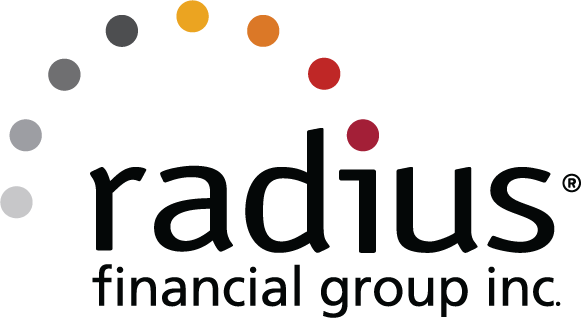If you have your sights set on a property with a price tag of half a million or more, you may need to take out a jumbo mortgage loan to finance the purchase. A jumbo loan is a loan that exceeds the limits set by the Federal Housing Finance Agency (FHFA) for conforming loans.
The key difference between a jumbo loan and a conforming loan is that jumbo loans aren’t backed by Freddie Mac and Fannie Mae because they exceed the limit set by the FHFA.
The FHFA was established by the Housing and Economic Recovery Act of 2008 to regulate Freddie Mac, Fannie Mae, and the Federal Home Loan Bank System. The FHFA authorizes Freddie Mac and Fannie Mae to buy mortgage loans from banks, but only if the loans meet certain criteria. One of those conditions is that the loans must be under the conforming loan limit, which the FHFA increases on some calendar years to keep up with rising home prices.
The baseline limit of conforming loans for a single-family home in 2020 is $510,400, up from $484,350 in 2019. And the 2020 limit for a single-family home in high-cost areas like Hawaii, Alaska, and a handful of counties across the country is $765,600—or 150 percent of $510,400.
It’s important to distinguish between a high-balance loan and a jumbo loan. High-balance loans are conforming loans that are higher than the country-wide baseline limit, but are still under the limit for a particular county. Home prices vary substantially across the country, so the loan limit in your area will depend on the average home value in your county. You can check the conforming loan limits in your county here.
Contrary to what you might think, jumbo loans aren’t just for the wealthy. A jumbo loan may be a good option for anyone who wants to purchase a home that happens to be priced above the loan limit in its area.
How Do You Qualify for a Jumbo Loan?
Banks’ ability to sell to Freddie and Fannie acts as a sort of safety net and enables banks to be more lenient in their lending practices. Because jumbo loans don’t come with that safety net, they typically have more stringent requirements. And because jumbo loans don’t conform to the FHFA guidelines, lenders tend to set their own eligibility requirements for jumbo loans. For that reason, jumbo loan requirements can vary from lender to lender. Here are a few of the ways jumbo loan requirements differ from conforming loans:
- Higher credit scores: While the minimum FICO credit score for a conventional loan approval tends to be around 620, credit scores for jumbo loans tend to be around 720 or higher.
- Larger down payments: Down payments for a conforming mortgage are traditionally 20 percent of the purchase price—or sometimes less for first-time homebuyers or those who qualify for government-backed loans. Jumbo loans often require a down payment of 20-30 percent because lenders need to make sure you can afford the property.
- Low debt-to-income ratio: Lenders will want to make sure your debt-to-income ratio is between 38-43 percent, meaning your monthly mortgage payment and credit liabilities shouldn’t be more than 43 percent of your pretax income.
- Healthy cash reserves: Lenders want to see that you have enough cash set aside for several months of mortgage payments. Although that may mean 3-4 months for a conforming loan, lenders may want to see you have 6-12 months’ worth of cash reserves for a jumbo loan.
- Higher appraisal requirements: More expensive properties may have higher appraisal requirements, with loans over a million sometimes requiring two appraisals.
- Different documentation: Jumbo loans typically require different or increased documentation. For example, if your down payment is coming from a gift, additional documentation will likely be required.
Because jumbo loans involve more risk, they typically come with slightly higher interest rates, but those rates will vary significantly from lender to lender, so it’s important to shop around. You should also make sure that the property you’re looking at is eligible for a jumbo loan. Some lenders will only offer jumbo loans if the home will be the buyer’s primary residence, while others allow them for second homes and investment properties. Lenders may also have different rules for houses than they do for condominiums. Be sure to check with your lender for more specific information.
Who Should Take Out a Jumbo Loan?
A jumbo loan is ideal for someone who is a high earner but isn’t rich yet, also known as a HENRY. If you have a high-paying job that’s secure, but you haven’t been working long enough to have substantial savings, a jumbo loan could be your ticket to securing the home of your dreams now.
You should also keep in mind that the Tax Cuts and Jobs Act limits the amount of mortgage interest you can deduct from your taxes to $750,000 of qualified residence loans for couples filing jointly and $375,000 for couples filing separately. If your mortgage is over $750,000, just be aware that interest paid beyond that amount will not be deductible.
If you need a loan that’s just over the conforming loan limit, another option is to take out a second conventional mortgage to cover the additional cost. The best move will depend on your specific situation, so it’s worth discussing your options with an experienced loan officer.
Need Help with Your Jumbo Mortgage Loan?
If you still have questions about whether you qualify for a jumbo loan or if you want to start the process of securing your dream home, connect with a loan officer today.


